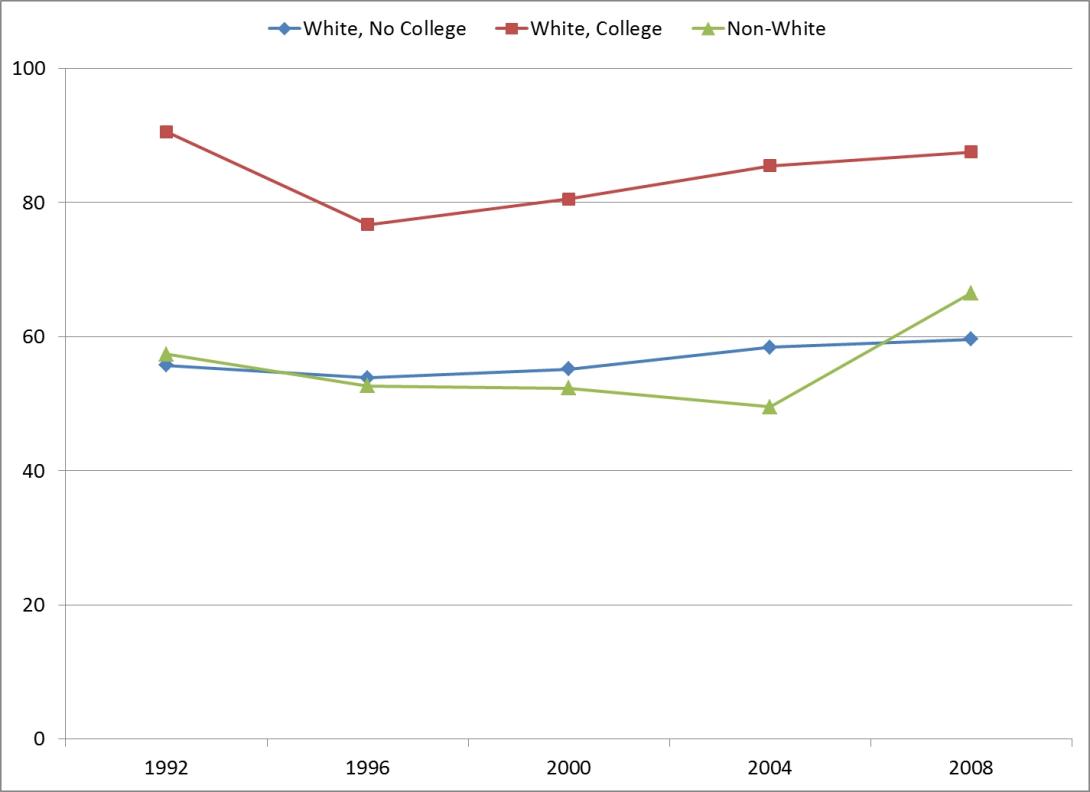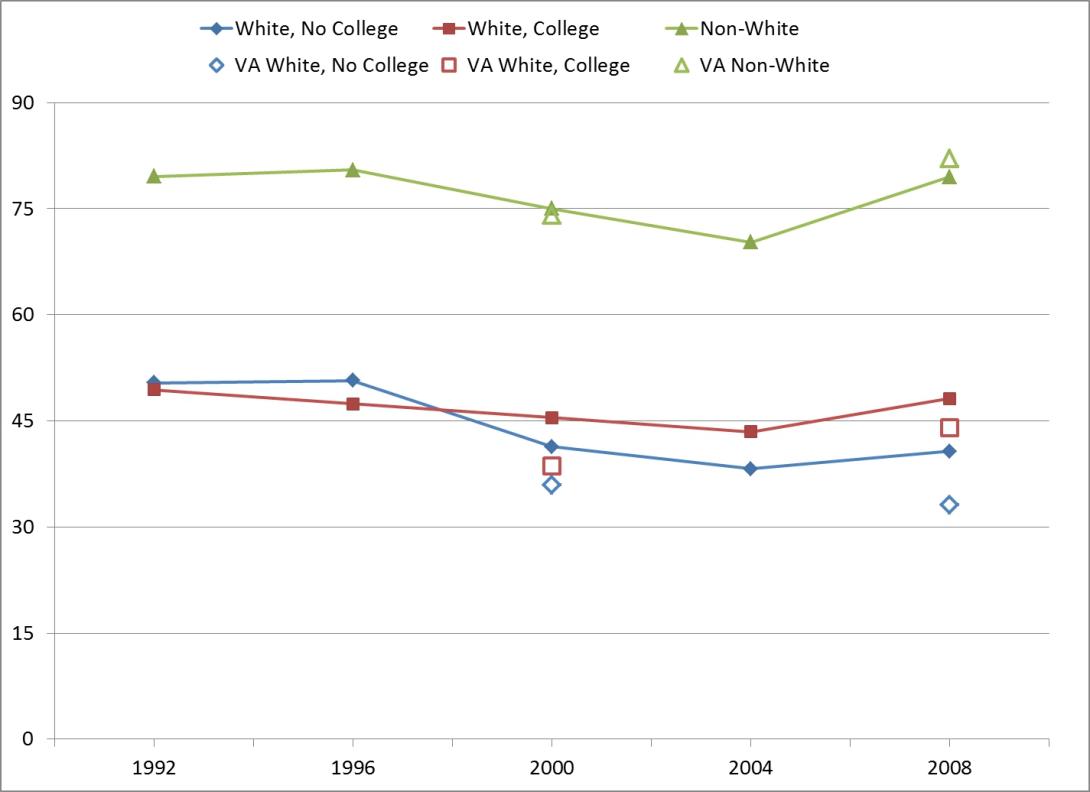Red State, Blue State: Education and the Vote
There has been no dearth of attention among political commentators, strategists, and scholars to the role of education in the upcoming presidential election, particularly regarding Obama’s and Romney’s support among college-educated and non-college-educated whites. As many pollsters have noted, Romney polls very well among non-college educated whites, but college-educated whites are more evenly split between the major-party contenders. A recent Pew survey illustrates the pattern.
College education is generally being used by most analysts as a proxy to distinguish working-class voters from more upscale voters. While we briefly considered class and income in our recently released report, Red State, Blue State: Demographic Change and Presidential Politics in Virginia, we didn’t explicitly explore education — primarily because the Election Day Exit Polls in Virginia didn’t include it as a question in most years (though education, as a predictor of turnout, is incorporated into the scenarios projecting the 2012 electorate under 2004 and 2008 conditions).
Still, given the attention paid to non-college whites as a key element of the Republican voting coalition, I thought readers might be interested in seeing more of the data.
First, let’s look at turnout (estimated from the Current Population Survey’s November Voting and Registration Supplements). While it’s true that minority groups tend to turnout to vote at lower rates than whites, there is a considerable difference in the turnout of college-educated and non-college-educated whites. (While turnout and vote choice vary by education among minorities as well, education is generally being used to differentiate working-class whites from professional-class whites; I’m adhering to that use here.)

College-educated whites have turned out in large numbers in the last five presidential elections; turnout only dipped below 80% in this group in 1996 (an election in which Clinton defeated Dole decisively). The turnout rates of non-college-educated whites, though, look quite similar to that of minorities.
College-educated whites have been growing as a share of the voting-eligible population (citizens aged 18 and over who can legally vote) in Virginia over this period, mostly at the expense of non-college-educated whites. Combine this with the turnout rates above and you end up with an electorate (made up of citizens who actually vote) in which the share of non-college-educated whites is declining over time — from about 51% of the Virginia electorate in 1992 to about 41% in 2008.
We can’t readily compare who college- and non-college-educated whites voted for during this period, but we can compare college- and non-college-educated white voters across the nation (via the National Election Day Exit Polls, which always ask voters about their education).

In the 90s, there wasn’t much of an education gap in voting among whites. By 2008, the gap was about 7%, with 48% of college-educated whites voting for Obama compared to 41% of non-college-educated whites.
I’ve added the two points we have for Virginia (2000 and 2008) as open symbols in the figure. While minorities in Virginia mirror the national trends, white voters in Virginia are less likely to vote Democratic than their national counterparts. But while college-educated whites in Virginia appear to move in the same direction as those in the nation, non-college-educated Virginians became even less likely to support Democrats than those in the nation.
There’s every reason to expect that Obama will continue to do poorly among non-college-educated white voters. In the most recent Quinnipiac Poll of Virginia, Obama gets 33% of the two-party vote intention among this group and Romney gets 66% of the two-party vote intention — support levels identical to the vote outcomes from 2008. Since the percent of non-college-educated whites in the state is not growing, Obama can afford to lose two-thirds of this demographic without forfeiting the state… so long as he doesn’t lose too much support among their college-educated counterparts.


